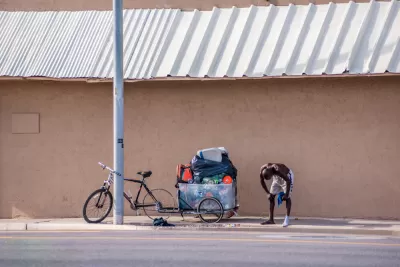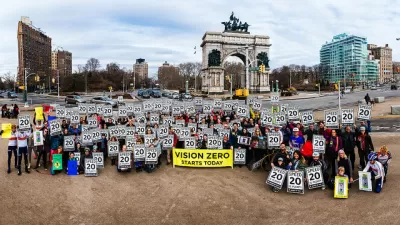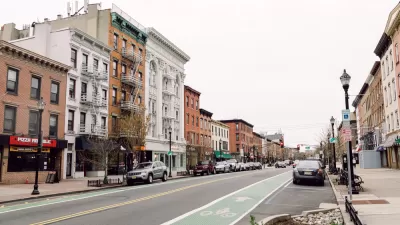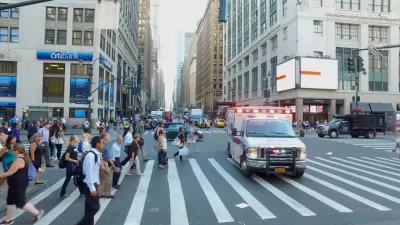Car-oriented politics keeps scoring wins in Phoenix.

"The Phoenix City Council for the first time ever discussed setting a goal to reduce pedestrian deaths — weeks after an Arizona Republic report that detailed the deadliest crossings — but then voted to kill the plan," according to an article by Agnel Phillip and Jessica Boehm.
The status of Vision Zero in Phoenix was still remarkably preliminary, given how many cities across the country have already adopted a policy, in name at least, to eliminate traffic fatalities. "Tuesday's vote would have directed city staff to assemble a framework of recommendations for reaching the goal of eliminating pedestrian deaths," according to Phillip and Boehm.
"Instead of seeking that research, several city council members said they were concerned that moving toward Vision Zero would force the city to adopt a strict protocol on all city streets that would lower speeds and, in turn, increase vehicle traffic congestion."
Phoenix has the highest fatality rate of any city in the state of Arizona over a population of 10,000. The City Council also recently voted to eliminate voter approved funding for a light rail extension planned for West Phoenix, and voters will get a chance to eliminate six planned light rail routes in an upcoming election. While public transit has been suffering in the local political scene, planners have been working to allow new density and building heights to the city's downtown core, so Phoenix will continue to be a location to watch the a confrontation between the shifting dynamics of planning best practices and the realities of urban politics in newer cities in the western United States.
FULL STORY: Phoenix officials vote against developing plan to eliminate roadway deaths

Planetizen Federal Action Tracker
A weekly monitor of how Trump’s orders and actions are impacting planners and planning in America.

Congressman Proposes Bill to Rename DC Metro “Trump Train”
The Make Autorail Great Again Act would withhold federal funding to the system until the Washington Metropolitan Area Transit Authority (WMATA), rebrands as the Washington Metropolitan Authority for Greater Access (WMAGA).

DARTSpace Platform Streamlines Dallas TOD Application Process
The Dallas transit agency hopes a shorter permitting timeline will boost transit-oriented development around rail stations.

The Tiny, Adorable $7,000 Car Turning Japan Onto EVs
The single seat Mibot charges from a regular plug in about as much time as an iPad, and is about half the price of an average EV.

Supreme Court Ruling in Pipeline Case Guts Federal Environmental Law
The decision limits the scope of a federal law that mandates extensive environmental impact reviews of energy, infrastructure, and transportation projects.

Texas State Bills to Defund Dallas Transit Die
DART would have seen a 30% service cut, $230M annual losses had the bills survived.
Urban Design for Planners 1: Software Tools
This six-course series explores essential urban design concepts using open source software and equips planners with the tools they need to participate fully in the urban design process.
Planning for Universal Design
Learn the tools for implementing Universal Design in planning regulations.
Roanoke Valley-Alleghany Regional Commission
City of Mt Shasta
City of Camden Redevelopment Agency
City of Astoria
Transportation Research & Education Center (TREC) at Portland State University
US High Speed Rail Association
City of Camden Redevelopment Agency
Municipality of Princeton (NJ)





























